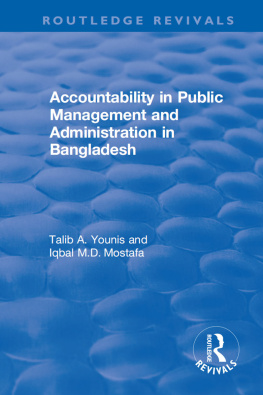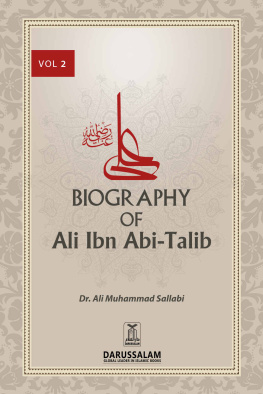John Butt - A Talib’s Tale: The Life and Times of a Pashtoon Englishman
Here you can read online John Butt - A Talib’s Tale: The Life and Times of a Pashtoon Englishman full text of the book (entire story) in english for free. Download pdf and epub, get meaning, cover and reviews about this ebook. year: 2020, publisher: Penguin Random House India Private Limited, genre: Detective and thriller. Description of the work, (preface) as well as reviews are available. Best literature library LitArk.com created for fans of good reading and offers a wide selection of genres:
Romance novel
Science fiction
Adventure
Detective
Science
History
Home and family
Prose
Art
Politics
Computer
Non-fiction
Religion
Business
Children
Humor
Choose a favorite category and find really read worthwhile books. Enjoy immersion in the world of imagination, feel the emotions of the characters or learn something new for yourself, make an fascinating discovery.
- Book:A Talib’s Tale: The Life and Times of a Pashtoon Englishman
- Author:
- Publisher:Penguin Random House India Private Limited
- Genre:
- Year:2020
- Rating:3 / 5
- Favourites:Add to favourites
- Your mark:
- 60
- 1
- 2
- 3
- 4
- 5
A Talib’s Tale: The Life and Times of a Pashtoon Englishman: summary, description and annotation
We offer to read an annotation, description, summary or preface (depends on what the author of the book "A Talib’s Tale: The Life and Times of a Pashtoon Englishman" wrote himself). If you haven't found the necessary information about the book — write in the comments, we will try to find it.
John Butt: author's other books
Who wrote A Talib’s Tale: The Life and Times of a Pashtoon Englishman? Find out the surname, the name of the author of the book and a list of all author's works by series.
A Talib’s Tale: The Life and Times of a Pashtoon Englishman — read online for free the complete book (whole text) full work
Below is the text of the book, divided by pages. System saving the place of the last page read, allows you to conveniently read the book "A Talib’s Tale: The Life and Times of a Pashtoon Englishman" online for free, without having to search again every time where you left off. Put a bookmark, and you can go to the page where you finished reading at any time.
Font size:
Interval:
Bookmark:



PENGUIN BOOKS

PENGUIN BOOKS
Those who have been driven out of their homes unjustly, only because they said Our Lord is Allah.
Al-Quran, 22:40
It was the early hours of Thursday, 20 October 2016. Men were keeping watch on the road between Lower and Upper Pachir. Situated on the lower slopes of Spin Ghar, the White Mountain that dominates the scenery in southern Nangarhar province, in the east of Afghanistan, Lower and Upper Pachir had long been in the sights of Daesh.
The watchmen were alerted by the sound of some men with donkeys. Who goes there? they called out. Mung khro waley yoo, came the reply. The men were taking their donkeys up to the mountains, to collect wood. It is usual for the people of Pachir to set out in the early hours so they can collect wood from Spin Ghar and bring it back before sundown. However, the men soon returned. Daesh have arrived! they warned the men keeping guard.
By the time people had said their early morning prayers in Lower Pachir, families were already getting ready to flee. Who knew how long it would be before Daesh were upon them? In fact, they would probably have swooped on Lower Pachir had it not been for the warning given by the donkey drivers. Armed men from Lower Pachir came out of their houses to defend their territory against the encroaching Daesh forces. Daesh were immeasurably better armed than the local Pachir people. They were also battle ready and hardened. In fact, they were equipped with sniper rifles, fitted with telescopes. Their marksmen were strategically positioned in the hills above Lower Pachir. Those mounting the resistance in Lower Pachir suffered twelve wounded, six killed.
Men, women and children from both Upper and Lower Pachir were fleeing for their lives. They had every reason to fear Daesh. The people of Pachir were considered to be at the forefront of the resistance to Daesh. While Daesh follow the Salafior Wahabimodel of Islam, brooking no customs that to their mind contravene the practice or Sunna of the Holy Prophet, the people of Pachir are more traditional Hanafialso SunniMuslims, allowing visits to shrines and including more Pashtoon customs in their marriages, funerals and other functions.
While some districts in Nangarhar are considered more sympathetic to DaeshChaprahar, for example, or the neighbouring province of KunarPachir is considered staunchly anti-Daesh, unsympathetic to Salafi doctrines.
The most important thing for a Pashtoon is his honour. And that honour is inextricably tied to her honour: the honour of Pashtoon womenfolk. Stories coming out of Achin, Deh Bala, Dur Babadistricts already to a certain degree under the control of Daeshhad suggested that enslavement was commonly practised in areas that had been taken over by Daesh. Women had been taken away, so the stories went. Certainly, the people of Pachir believed the stories. Why did you flee? I asked one person who had fled from Lower Pachir with his whole family. What do you mean? They take away our women. His reply was emphatic. This pointed to an alarming polarization of Pashtoon society, with some taking women by force and others holding this to be the most reprehensible and dishonourable thing possiblesomething they would guard against with their lives.
Whole families vacated Pachir with nothing more than the clothes on their back. Women could be seen clutching babies, without even a shawl on their headsan abject state for a Pashtoon woman to be seen in public. The people of Upper Pachir were also able to make their getaway despite the fact that their territory had been taken over by Daesh. They had the advantage of knowing their land. Daesh forces, said to be numbering a thousand, were not from the area. For the most part, according to reports from areas under their control, Daesh were from the Orakzai tribe, in the Pakistan-administered tribal areas. They were strangers to this part of eastern Afghanistan.
Soon, the people in the district centre of Agam found out about the sudden exodus from Upper and Lower Pachir. They sent all their cars and transport to the villages to help the displaced people reach the eastern metropolis of Jalalabad. Already, many people from Pachir were residing there. Most of the newcomers stayed with relatives who were already there, some in makeshift tents, all of them becoming another statistic in the aid agencies lists of hundreds of thousands of Pashtoons displaced from their homes due to sectarian fighting.
Back in Pachir, young men, the cream of their generation, were left to guard in watchtowers in Lower Pachir, to check the advance of Daesh. They could not have known that an onslaught would come from the opposite direction. US forces were based in the airport at Jalalabad. Hearing that Daesh had advanced as far as Upper Pachir, they thought it would be a good idea to bomb them. I do not know how many of their missiles hit the Upper Pachir strongholds of Daesh, but at 11:30 on Saturday morning, a missile fired from a drone hit a tower where five young men of Lower Pachir had been stationedthe front line against Daesh. All five perished. You would have been proud of them, had you set eyes on them, one Pachir person said to me. Very little damage was done to the actual watchtower, one of the men who dug the graves of the young men told me. But our sons had been positioned on the third floor of the tower. Their bodies were recovered from the ground floor.
* * *
While I had first arrived in Swat in 1970, I made the valley my home in 1985, after I returned from my studies in a madrasa in India. If Kashmir is heaven on earth, Swat, a valley running due north-south to the north of Peshawar, is known as the Switzerland of the East. In the 1970s, Swat had been a favourite hippie destination; in particular, Madyan. It was in Madyan that I made my home in 1985. In the 1970s, one whole quarter of Madyan, near the tributary river that flows down to the Swat River from Bishigram, was called Da Angrezano KaliEuropean quarterby the local people. Now, in 2009, there were no foreigners left, only me, still living in my home next to the river in Madyan. I was on my way from Madyan to the Swat capital of Mingora one day when I caught sight of men, women and children from a village across the river, milling around, disoriented, most of the womenfolk sitting, their backs to the road, overlooking the dazzling Swat River below them. It was a bright, late spring day. The army was bombarding the village of Upper Mamdheri, purported to be a stronghold of Radio Mulla Fazlullah; in fact, it was right next to the Radio Mullas own village of Lower Mamdheri.
The strength of the Radio Mulla had been building since 2006, when he was famous for travelling around the area on a white horse. In 2008, he turned from a mulla exhorting people on his FM radio to follow his own puritan version of Islam, to one who was taking over Swat territory by force, killing and bombing people and government installations as he went. His demand was the full implemention of shariahIslamic law. The momentum of this Shariah movement had been bulding since 1994. Then, it had been Fazlullahs father-in-law Sufi Mohammad who briefly took over most of the Swat valley, as part of his Movement for Implementation of the Shariah. In 1994, it had been the local Frontier militiasfellow Pashtoons who had defused the situation. Now, in 2008, they same Frontier militias found themselves unable to do so. The Pakistan Army was called in. At the time of the exodus from Upper Mamdheri, the Army was still engaged in battle with the militants.
Font size:
Interval:
Bookmark:
Similar books «A Talib’s Tale: The Life and Times of a Pashtoon Englishman»
Look at similar books to A Talib’s Tale: The Life and Times of a Pashtoon Englishman. We have selected literature similar in name and meaning in the hope of providing readers with more options to find new, interesting, not yet read works.
Discussion, reviews of the book A Talib’s Tale: The Life and Times of a Pashtoon Englishman and just readers' own opinions. Leave your comments, write what you think about the work, its meaning or the main characters. Specify what exactly you liked and what you didn't like, and why you think so.














